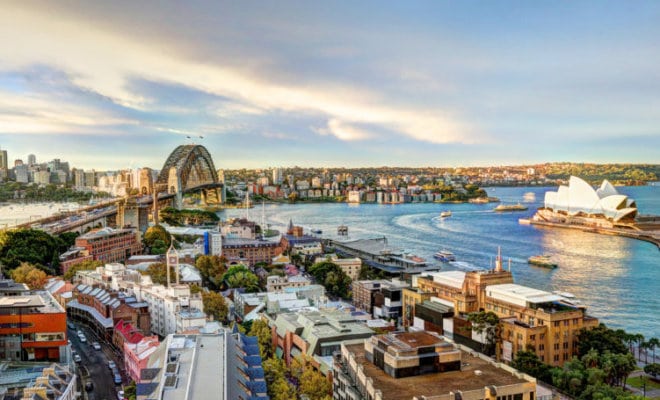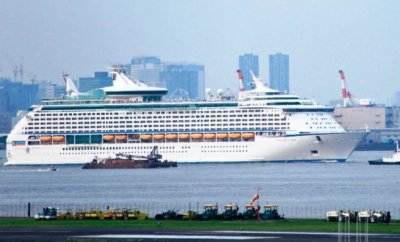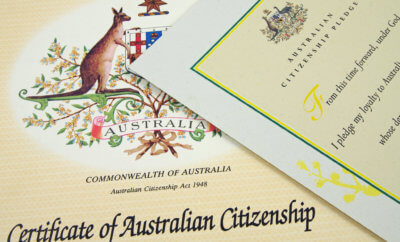Immigration
Processing Time for Citizenship Applications Increases in Australia

Sydney harbour bridge and opera house.
Photo: Bigstock
The average time for processing citizenship applications in Australia has got extended from 12 to 16 months this financial year.
As the debate over immigration cap rages on in Australia, the Department of Home Affairs announced that the average time for processing a citizenship application has got extended from 12 to 16 months this financial year, SBS News reported.
Tightening of national security requirements and a growth in the number of applications has caused an increase in the duration taken between the time a person lodges an application for citizenship and when the status is finally granted, Home Affairs officer Luke Mansfield told the Senate earlier this week when responding to queries related to citizenship applications. As a result, the number of complaints about the processing time have also risen.
“One is that the department has increased the integrity screening and checking processes from a national security and criminality risk perspective.The second factor driving that change is growth in the number of applications. The number of applications has been increasing year-on-year from a very significant base,” Mansfield said in a statement to Senate committee in Canberra on May 22.
He also said that the applications are on the rise although the format of application has changed, with more than 210,000 citizenship applications “on hand” as of April 30. This number includes applications that are still to be assessed and are in the process of being scrutinized, as well as people who have not attended citizenship ceremonies.
In order to keep up with the demand, Mansfield said that a 16 percent increase has been done in processing staff since July 2016.
The extension of processing time has been received bitterly among immigrants, SBS News Punjabi reported. The permanent residency application has changed since his time as a student in 2008, Sahil Sharma from Queensland’s Gold Coast told the publication, adding that the IELTS requirements as well as the rules to residency after working on a 457 visa have also been changed. Sharma said he applied for a Regional Sponsored Migration Scheme (RSMS) visa, which requires a job offer in a regional area of Australia, in November 2016 but still does not know the outcome. Some of the regional areas stipulated for the RSMS visa are the whole of Western Australia, the whole of South Australia, and Victoria — all areas excluding Melbourne, including some others. The Australian government is currently considering a policy that would require immigrants arriving in Australia on the RSMS visa to live in regional or rural Australia as opposed to big cities like Sydney or Melbourne.




You must be logged in to post a comment Login